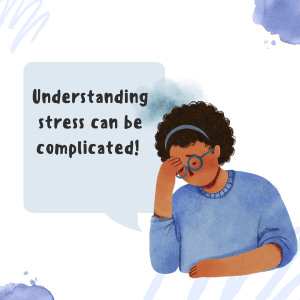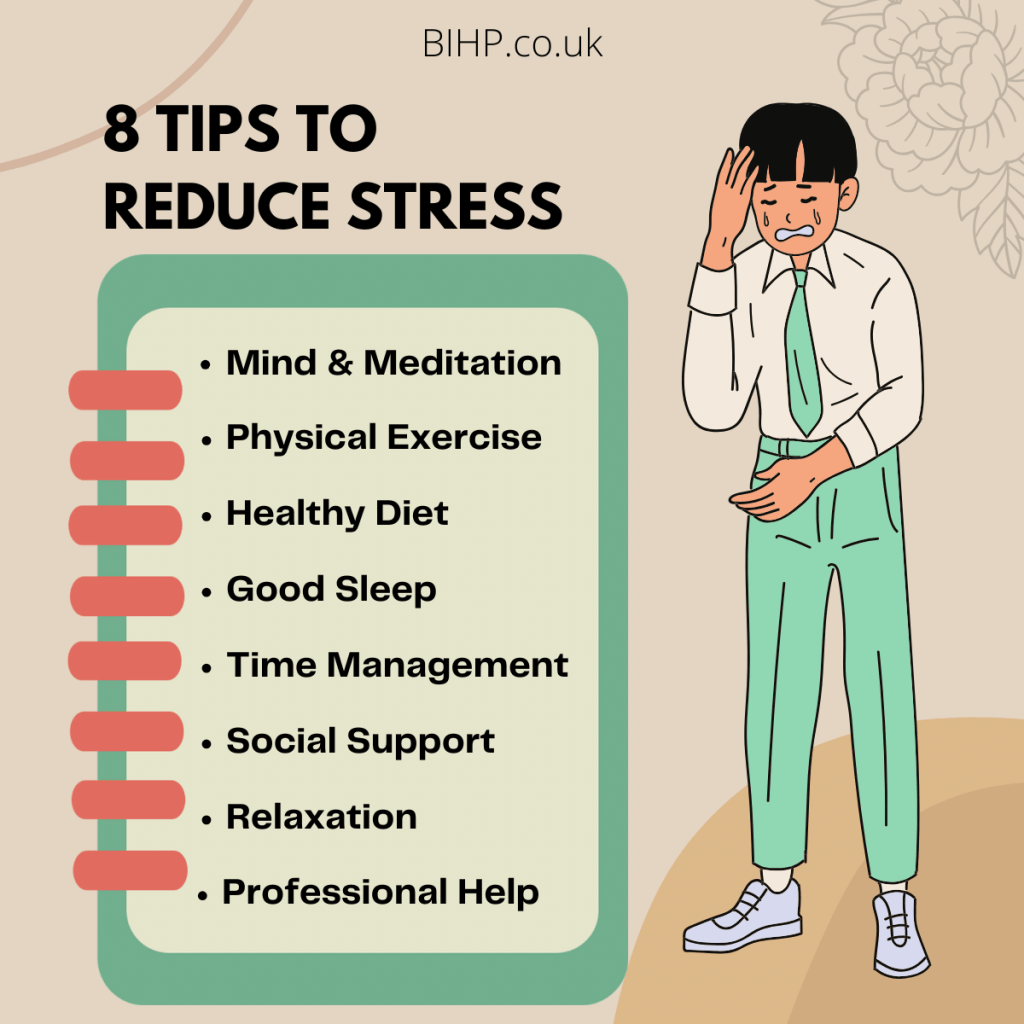Stress will kill you! That is not just a saying it is a fact, but it is an unavoidable part of modern life, often creeping into our daily routines unnoticed. While some level of stress can be beneficial, pushing us to meet deadlines or adapt to challenging situations, chronic stress can have devastating effects on both physical and mental health.
The long-term consequences of unmanaged stress are severe. Potentially leading to a host of chronic conditions that diminish quality of life and reduce lifespan.
This article delves into why it is so important to avoid stress. The specific health conditions it can cause, and practical steps to reduce it.
Understanding Stress: A Double-Edged Sword
 Stress is the body’s natural response to any demand or threat, often referred to as the “fight-or-flight” response. While this mechanism is essential for survival, chronic stress – where the response is activated over prolonged periods – has harmful repercussions. Chronic stress keeps the body in a heightened state of alert, which, over time, disrupts normal physiological processes and leads to wear and tear on the body.
Stress is the body’s natural response to any demand or threat, often referred to as the “fight-or-flight” response. While this mechanism is essential for survival, chronic stress – where the response is activated over prolonged periods – has harmful repercussions. Chronic stress keeps the body in a heightened state of alert, which, over time, disrupts normal physiological processes and leads to wear and tear on the body.
Acute vs Chronic Stress
- Acute Stress: Short-term stress that can help improve focus and performance. For instance, preparing for an important presentation or running to catch a train.
- Chronic Stress: Long-term, continuous stress that arises from ongoing pressures, such as financial worries, workplace demands, or caregiving responsibilities. This type of stress is the most harmful and is what must be managed carefully.
The Negative Impact of Chronic Stress on Health
Chronic stress manifests in various ways, affecting nearly every system in the body. Its long-term effects are often silent but incredibly damaging. Stress will kill you it has known the be the silent killer, it can take years, so there is a very large timeline to step-in and take control today, stress will kill you!
1. Cardiovascular System: A Strain on the Heart
Chronic stress elevates heart rate and blood pressure, increasing the risk of cardiovascular diseases. Over time, the persistent release of stress hormones like cortisol and adrenaline can:
- Cause hypertension (high blood pressure), a major risk factor for heart attacks and strokes.
- Lead to atherosclerosis, a condition where arteries become clogged with fatty deposits.
- Trigger arrhythmias (irregular heartbeats), which can be life-threatening.
2. Immune System Suppression
Stress weakens the immune system, making the body more vulnerable to infections and illnesses. Chronic stress inhibits the production of white blood cells, reducing the body’s ability to fight off pathogens. This can also lead to slower recovery times from illnesses or injuries.
3. Digestive System Disorders
The digestive system is highly sensitive to stress. Prolonged stress can result in:
- Irritable Bowel Syndrome (IBS): A condition characterised by abdominal pain, bloating, and irregular bowel movements.
- Stomach ulcers: Stress increases the production of stomach acid, which can erode the stomach lining and lead to ulcers.
- Changes in appetite: Stress can cause overeating or loss of appetite, contributing to weight gain or malnutrition.
4. Mental Health Deterioration
Perhaps the most well-known impact of chronic stress is its effect on mental health. Persistent stress can lead to:
- Anxiety and panic disorders, marked by constant worry and fear.
- Depression, characterised by low mood, fatigue, and loss of interest in activities.
- Burnout, particularly in high-pressure work environments, where stress reduces productivity and motivation.
5. Neurological and Cognitive Decline
Stress impairs cognitive function over time. Elevated cortisol levels can:
- Damage the hippocampus, a part of the brain critical for memory and learning.
- Contribute to brain fog, where concentration and decision-making become difficult.
- Increase the risk of neurodegenerative diseases, such as Alzheimer’s, due to long-term inflammation in the brain.
6. Hormonal Imbalances
Chronic stress disrupts the endocrine system, causing hormonal imbalances that can:
- Lead to irregular menstrual cycles in women.
- Reduce fertility in both sexes.
- Contribute to conditions like thyroid dysfunction.
7. Musculoskeletal Problems
Stress often causes muscle tension, leading to chronic pain conditions such as:
- Tension headaches or migraines.
- Lower back pain, which can become debilitating if not addressed.
Long-Term Consequences of Chronic Stress
If left unchecked, chronic stress can reduce life expectancy and severely impact one’s quality of life. It has been linked to:
- Chronic diseases such as diabetes, due to the stress-induced rise in blood sugar levels.
- Sleep disorders, where insomnia becomes a persistent problem, leading to exhaustion and irritability.
- Addiction, as individuals turn to alcohol, drugs, or overeating to cope with stress.
- Accelerated ageing, as stress shortens telomeres (protective caps on DNA), leading to premature ageing of cells.

Practices to Reduce Stress and Promote Well-Being
While stress cannot be entirely eliminated, it can be effectively managed through intentional practices. and its not just a loosely used phrase ‘stress will kill you’ it will defiantly catch up with you. Here are proven strategies:
1. Mindfulness and Meditation
Mindfulness involves focusing on the present moment and letting go of worries about the past or future. Regular mindfulness practice can reduce cortisol levels and improve emotional resilience. Meditation, whether guided or silent, is equally effective at calming the mind and body.
2. Physical Exercise
Exercise is a natural stress reliever. Activities such as walking, swimming, or yoga release endorphins – the body’s “feel-good” chemicals – which counteract stress hormones. Regular exercise also improves sleep quality and boosts overall energy levels.
3. Healthy Diet
A balanced diet rich in whole foods, fruits, vegetables, and omega-3 fatty acids supports the body’s stress response. Avoid excessive caffeine, sugar, and alcohol, which can worsen stress symptoms.
4. Adequate Sleep
Sleep is essential for stress management. Practising good sleep hygiene, such as maintaining a consistent sleep schedule and limiting screen time before bed, ensures the body has time to recover from daily stressors.
5. Time Management and Setting Boundaries
Poor time management often exacerbates stress. Learning to prioritise tasks, delegate responsibilities, and say “no” when necessary prevents burnout. Tools like to-do lists and time-blocking can be invaluable.
6. Social Support and Connection
Building and maintaining strong social connections is crucial for emotional well-being. Sharing concerns with friends, family, or a therapist can provide perspective and reduce the mental load.
7. Relaxation Techniques
Techniques such as deep breathing, progressive muscle relaxation, or aromatherapy can activate the parasympathetic nervous system, bringing the body into a state of rest and repair.
8. Professional Help
If stress becomes unmanageable, seeking professional help from therapists or counsellors is a vital step. Cognitive Behavioural Therapy (CBT), for example, has been shown to help individuals reframe stressful thoughts and develop healthier coping mechanisms.
Conclusion
The importance of avoiding chronic stress cannot be overstated. While stress may seem like an inevitable part of life, its long-term impact on physical and mental health is profound. Chronic stress can erode well-being, leading to a host of conditions ranging from heart disease to mental health disorders. Fortunately, with intentional practices such as mindfulness, exercise, proper nutrition, and strong social support, the burden of stress can be managed effectively. Prioritising stress reduction is not just a health choice – it’s a fundamental step towards living a happier, healthier, and more balanced life. Dont let stress will kill you.





